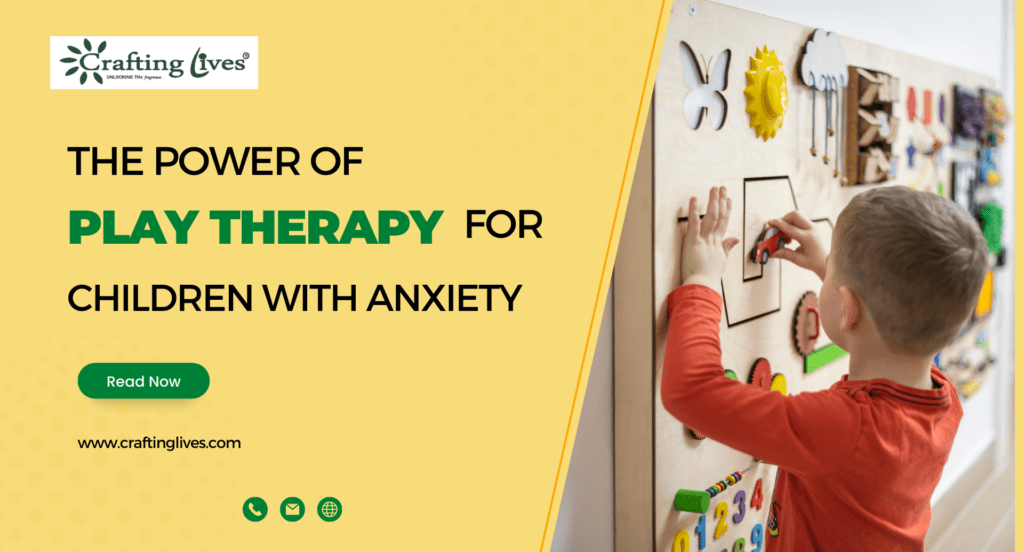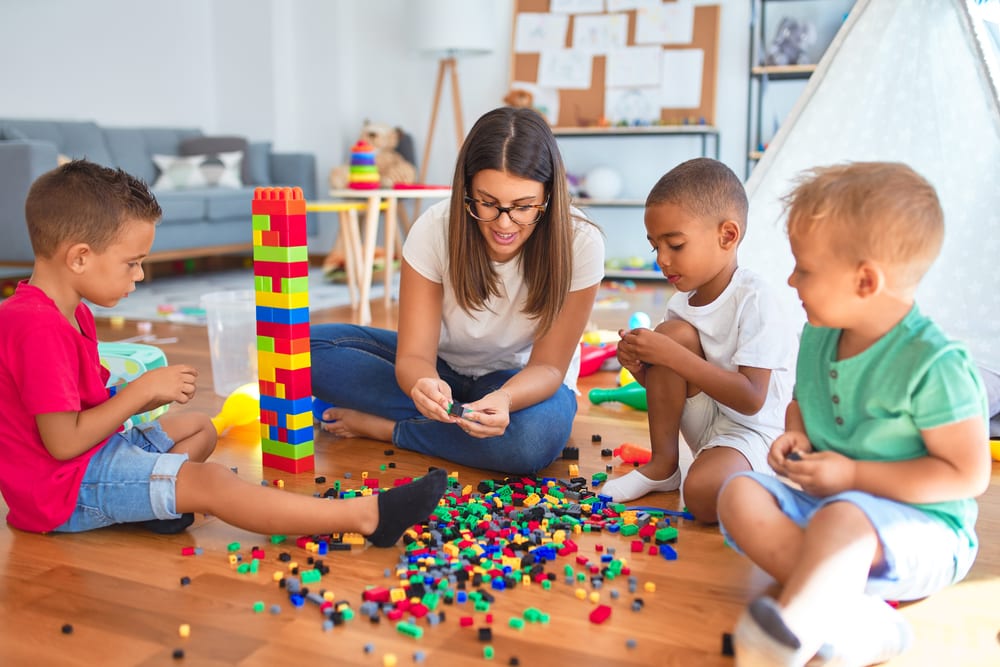
Anxiety is a common mental health issue among children. It can manifest in different ways, including excessive worry, difficulty sleeping, avoiding certain situations, and physical symptoms such as stomachaches and headaches. While there are different treatment options available for children with anxiety, play therapy has emerged as a powerful and effective approach for helping children to manage their symptoms and build resilience. In this blog, we’ll explore the power of play therapy for children with anxiety.
What is Play Therapy?
Play therapy is a form of therapy that uses play to help children and adolescents with emotional and behavioral difficulties. It is based on the understanding that play is a natural form of communication and expression for children, and that through play, they can process and work through their experiences and feelings.
During play therapy sessions, a trained therapist provides a safe and supportive environment where the child can engage in various types of play, such as drawing, painting, storytelling, and role-playing. The therapist may use toys, games, and other materials to facilitate the child’s expression of their thoughts and emotions.
Through play, children can learn coping skills, problem-solving strategies, and develop a better understanding of themselves and their experiences. Play therapy can be used to address a range of issues, such as anxiety, depression, trauma, ADHD, and social difficulties.
How Play Therapy Helps Children with Anxiety
While anxiety can be managed with different types of therapy, play therapy has emerged as a powerful approach to help children deal with their symptoms and build resilience. In this article, we’ll explore in more detail how play therapy helps children with anxiety.
Provides a Safe Space for Expression
Play therapy offers a safe space for children to express their emotions and thoughts without fear of judgment or reprimand. Children can use play to work through their worries and fears in a non-threatening way. The therapist acts as a guide and facilitator, helping the child to explore their feelings and develop coping strategies.
Builds Coping Skills
Play therapy helps children build coping skills by providing opportunities to practice problem-solving, decision-making, and emotional regulation. Through play, children can learn to manage their emotions and cope with stress in healthy ways. The therapist can help the child develop skills such as mindfulness, deep breathing, and positive self-talk to manage anxiety symptoms.
Promotes Social Skills
Play therapy can also help children develop social skills such as communication, empathy, and cooperation. Through play, children can learn to interact with others in a positive and healthy way, which can improve their self-esteem and reduce their anxiety. The therapist can use play activities such as role-playing games to help the child practice social skills.
Encourages Exploration and Self-Expression
Play therapy encourages exploration and self-expression. Children can use play to experiment with different scenarios and express themselves in a non-verbal way. This can help the child to gain insight into their emotions and develop a better understanding of their anxiety.
Examples of Play Therapy Techniques for Anxiety
Here are some examples of play therapy techniques that can be used to help children with anxiety:
1. Sand Tray Therapy
Sand tray therapy involves using a tray filled with sand and miniature objects to create a scene that represents the child’s feelings or experiences. The child can manipulate the sand and objects to work through their emotions and express themselves in a non-verbal way. This can be helpful for children who find it difficult to express their emotions verbally.
2. Art Therapy
Art therapy involves using art materials such as paints, markers, and clay to express emotions and work through challenges. Children can use art to create images that represent their feelings or to explore their worries in a creative way. Art therapy can help children who have difficulty expressing themselves verbally.
3. Play Therapy Games
Play therapy games such as board games, card games, and role-playing games can be used to help children develop coping skills, problem-solving skills, and social skills. These games provide a structured way for children to learn and practice these skills in a fun and engaging way. For example, a therapist might use a game that involves deep breathing or visualization exercises to help a child manage their anxiety symptoms.
4. Puppets and Dolls
Puppets and dolls can be used in play therapy to help children act out scenarios and work through their worries and fears. Children can use the puppets and dolls to express themselves in a non-threatening way and to explore different solutions to their challenges.
Seven Tips for Parents Whose Children are Receiving Play Therapy for Anxiety

- Trust the process: It can be difficult to see your child struggle with anxiety, but trust that the play therapist is trained to work with children and help them process their emotions. Give the therapy time to work, and don’t be discouraged if progress seems slow at first.
- Be involved: While the play therapist will work directly with your child, your involvement in the therapy process is also important. Attend meetings with the play therapist, ask questions, and provide feedback. You may also be given suggestions for activities to do at home to support your child’s therapy.
- Be patient: Healing takes time, and progress may not always be linear. Your child may have setbacks or difficulties along the way, but continue to provide love and support throughout the process.
- Practice self-care: Caring for a child with anxiety can be stressful, so make sure to take care of yourself as well. Seek out support from friends, family, or a therapist if needed. Taking care of your own mental health will better enable you to support your child.
- Use play at home: Encourage your child to engage in playful activities at home, as play can be therapeutic and can help your child continue to work through their emotions. Encourage creative expression through art, music, or storytelling.
- Be open and honest: Encourage your child to express their emotions openly and honestly, and model this behavior for them. Foster an environment where it is safe to discuss difficult emotions and work through them together.
- Celebrate progress: Celebrate and acknowledge your child’s progress, no matter how small it may seem. Reinforce positive behaviors and encourage your child to continue to use the skills they are learning in therapy.
Conclusion
It is important to note that every child’s experience with anxiety is unique, and play therapy may not be the best fit for every child. Parents should work with their child’s mental health provider to determine the most appropriate treatment plan for their child’s needs. Overall, the power of play therapy lies in its ability to help children build emotional resilience and cope with anxiety in a healthy and productive way.
Crafting Lives is one of the Best Child Therapy Centre in Indirapuram, Ghaziabad. We also provide one on one therapies related to autism and special education in Indirapuram center. The center had the modest beginnings in 2015, and despite the turbulence of the pandemic, managed to deliver the best quality of therapies to the CSN.
